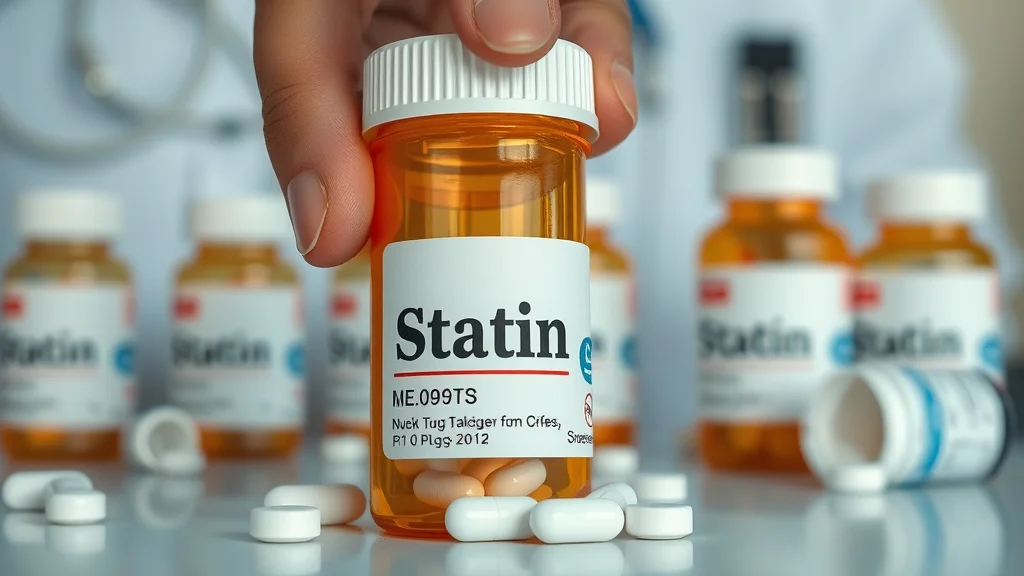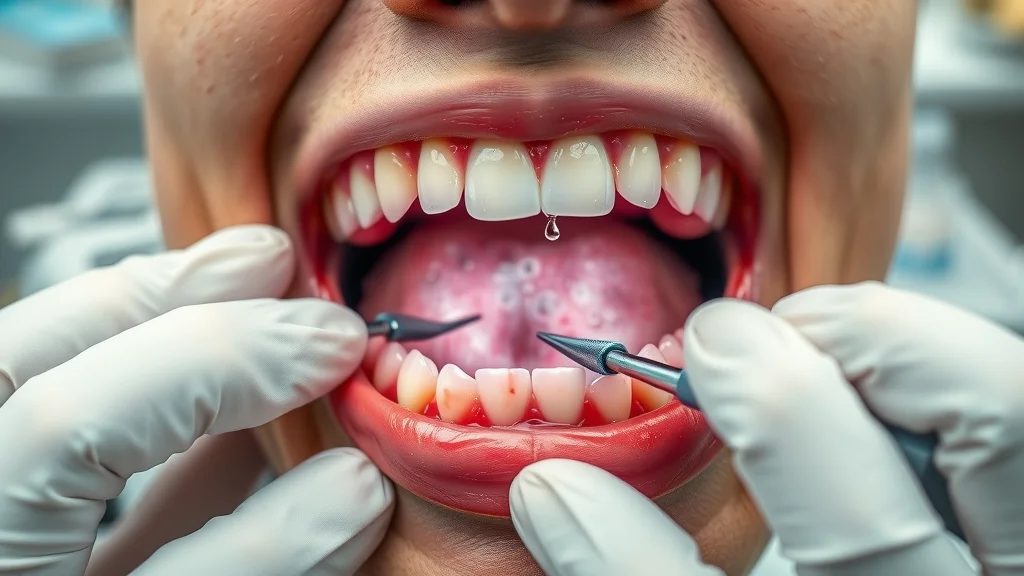Did you know nearly 1 in 4 adults are prescribed statins, despite ongoing debate about cholesterol’s role in heart disease? This cholesterol statin controversy is a crucial topic that affects millions worldwide. Understanding this debate can empower you to make informed health decisions and confidently navigate cardiovascular care. In this article, we dive deep into the origins of the cholesterol hypothesis, the rise of statin drugs, their benefits and side effects, and alternative perspectives on what truly causes heart disease.
The Prevalence and Debate Surrounding Statin Use
Did you know nearly 1 in 4 adults are prescribed statins, despite ongoing debate about cholesterol’s role in heart disease? Understanding this controversy can help you make informed health choices and navigate cardiovascular care with confidence.

The widespread use of statins is a testament to the pervasive belief that lowering cholesterol can prevent heart attacks. However, this view has faced increasing challenges from experts like Dr. Malcolm Kendrick, who argue that cholesterol might not be the enemy it's made out to be. With millions of people taking statins worldwide, the debate over their true benefits and risks has never been more relevant.
Understanding the cholesterol statin controversy requires exploring its history, scientific evidence, and alternative viewpoints. Let’s begin with the origins behind the cholesterol hypothesis that shaped decades of cardiovascular medicine.
What You'll Learn: Key Insights into the Cholesterol Statin Controversy
The origins and evolution of the cholesterol hypothesis
The role of statins and their effectiveness in preventing heart attacks
Common side effects and risks associated with statin use
Alternative perspectives on what causes heart disease
How to critically evaluate medical research and treatment options
Historical Background: The Origins of the Cholesterol Hypothesis
Anel Keys and the Seven Countries Study: The Birth of the Saturated Fat and Cholesterol Theory
Dr. Malcolm Kendrick, of British Thought Leaders, explains, "The man who drove it was a chap called Anel Keys... He just changed the hypothesis to fit what he thought were the facts."
The cholesterol hypothesis took root in the mid-20th century, largely due to the influential work of Anel Keys. After World War II, rising rates of heart disease triggered urgent scientific inquiry. Keys proposed that higher cholesterol intake, primarily from saturated fats, caused heart disease by raising blood cholesterol levels.
However, as Dr. Kendrick notes, Keys’ seminal “Seven Countries Study” selectively presented data to support his theory, omitting nations like France and Switzerland where saturated fat intake was high but heart disease rates were low. This selective approach laid the foundation for decades of cholesterol-centered cardiovascular research.
Contradictory Evidence: Saturated Fat Intake and Heart Disease Rates Across Europe

Comparison of Saturated Fat Consumption and Heart Disease Rates in European Countries
Country |
Average Saturated Fat Intake (%) |
Heart Disease Rate (per 100,000 per year) |
|---|---|---|
France |
15.5% |
24 |
Switzerland |
15% |
27 |
Moldova |
5% |
240 |
Ukraine |
~5% |
230 |
Contrary to Keys’ hypothesis, countries like France and Switzerland consume high amounts of saturated fat yet maintain low rates of heart disease. On the other hand, Moldova and Ukraine, consuming far less saturated fat, suffered heart disease rates nearly ten times higher. These contradictory patterns suggest that saturated fat is unlikely to be the primary causative factor in heart disease.
Dr. Kendrick points out that such revealing data has become increasingly difficult to access, fueling skepticism about mainstream dietary recommendations and the cholesterol theory itself.
The Cholesterol Statin Controversy: Examining the Evidence and Claims
Do Cholesterol and LDL Cause Heart Disease? Expert Opinions and Research Findings
Dr. Malcolm Kendrick states, "Of all the substances I can find, the one I cannot find that does anything to the arterial wall is low density lipoprotein cholesterol. It does nothing."
The longstanding belief that low-density lipoprotein (LDL) cholesterol directly causes arterial damage and heart disease is now under intense scrutiny. Dr. Kendrick, a seasoned general practitioner, has devoted years to examining the evidence and finds no convincing link between LDL cholesterol and arterial wall harm.
He elaborates, “Cholesterol does not cause heart disease. This is it.” Despite over a century of research, no substance has been definitively proven to damage arteries in the way cholesterol is claimed to do. This challenges the foundation of modern cardiovascular prevention strategies focused on cholesterol reduction.
While the debate over cholesterol and statins continues, it's important to recognize that dietary choices can also play a significant role in cardiovascular health. For those seeking practical ways to support heart health, exploring healthy low-sodium fast food options can be a smart step toward reducing risk factors beyond cholesterol alone.
Statins: Benefits, Side Effects, and the Question of Life Extension
Statins reduce heart attack rates by approximately 30%
Average life expectancy increase is only about 3-4 days over five years
Common side effects include muscle pain, memory loss, and fatigue
Statins are among the most profitable drugs in medical history
Dr. Kendrick warns, "The mainstream view is statins are side effect free... but I have spoken to thousands of people whose lives have been crippled and ruined by these drugs."

Statins have become the cornerstone of cardiovascular disease prevention, prescribed to millions globally. Clinical trials often highlight a 25-30% reduction in heart attack rates among statin users. However, when examining the data on life expectancy, benefits appear minimal. A notable British Medical Journal study found that five years of statin therapy for high-risk individuals typically extends life by only around four days.
Patient experiences paint a different picture. Dr. Kendrick reveals numerous reports of adverse effects, from muscle pain to cognitive decline, that the medical establishment often dismisses. These side effects can severely impact quality of life, raising questions about whether the marginal life expectancy gain justifies widespread statin use.
Alternative Causes of Heart Disease Beyond Cholesterol
The Role of Arterial Damage, Blood Clotting, and Repair Mechanisms
Dr. Kendrick explains, "Heart disease is a disease of arteries... caused by damage to the lining of the blood vessels and blood clotting."
Moving beyond cholesterol, Dr. Kendrick highlights that heart disease fundamentally involves damage to the arteries’ inner lining (the endothelium) and the body’s clotting response. When arterial walls are injured by factors like high blood pressure, smoking, or toxins, the body attempts to repair with clot formation. These clots can thicken to form plaques, narrowing the arteries, which may eventually cause a heart attack or stroke.
Understanding heart disease in this light shifts focus towards preventing arterial injury and promoting vascular repair — a perspective that opens new avenues for prevention and treatment.
Stress, Social Dislocation, and Mental Strain as Major Contributors

Immigration and cultural relocation stress
Mental health conditions such as PTSD and depression
Social upheaval and economic crises
Lifestyle factors including smoking and diabetes
Social and psychological stressors play a critical role in heart disease development. Relocation and cultural upheaval, as seen in immigrant communities, correlate with increased heart disease rates. Conditions like PTSD and depression, which raise stress hormone levels, also elevate cardiovascular risk. Economic crises and social dislocation similarly influence disease rates.
Dr. Kendrick emphasizes the concept of “strain” rather than mere stress — the body’s response varies widely per individual despite similar stressors. This complexity explains why identical lifestyle factors lead to different heart disease outcomes.
Environmental and Infectious Factors: Lead Exposure and Gum Disease
Impact of Environmental Toxins and Infections on Arterial Health and Heart Disease Risk
Factor |
Mechanism of Contribution |
Heart Disease Risk Impact |
|---|---|---|
Lead Exposure |
Damages arterial lining; bioaccumulates in bones |
Estimated to cause 160,000 heart attacks/year in the US |
Gum Disease (Periodontal Infection) |
Bacterial exotoxins damage arterial lining |
Significant contributor to arterial damage and inflammation |
COVID-19 Infection |
Virus infects endothelial cells; causes immune-mediated damage including cytokine storms |
Increased heart disease and death rates observed during pandemic |

Environmental toxins like lead, despite reduced exposure today, remain a hidden contributor to arterial injury and heart disease. Lead accumulates long-term in bones and damages arteries over decades. Likewise, chronic gum disease releases bacterial toxins into the bloodstream, harming the arterial lining.
The recent COVID-19 pandemic has also highlighted how infections can exacerbate cardiovascular risk via endothelial infection and excessive immune responses. These factors underscore that heart disease is multifactorial — far beyond cholesterol levels alone.
Common Side Effects and Misconceptions About Statins
Understanding Statin Side Effects and Patient Experiences
Muscle aches and pains
Cognitive issues such as memory loss
Fatigue and decreased quality of life
Underreporting and dismissal of side effects by medical professionals

Although statins are often touted as safe and free from side effects, many patients experience debilitating symptoms. Muscle pain is among the most commonly reported problems, alongside cognitive difficulties and general fatigue. Dr. Kendrick’s clinical experience reveals countless individuals whose lives have been adversely affected by statins but whose concerns are frequently downplayed or ignored by healthcare providers.
Why Some Cardiologists and Patients Oppose Statin Use
Dr. Kendrick remarks, "Statins add 15 years to your life means you'll feel 15 years older because of side effects."
Such critiques highlight a growing divide within the medical community concerning statin use. Critics question whether modest benefits in reducing heart attacks warrant the widespread prescription of these drugs, especially when side effects can impair patients’ quality of life.
Dr. Kendrick’s analogy stresses that a statistical extension in life expectancy may translate to diminished well-being: the “added” years may be less vibrant due to side effects. This perspective urges patients to weigh benefits carefully and engage in shared decision-making with their physicians.
FAQs: Addressing Common Questions About the Cholesterol Statin Controversy
What is the controversy over taking statins?
The controversy centers on whether cholesterol is the true cause of heart disease, the limited life extension benefit from statins, and under-recognized side effects.Why are statins banned in Europe?
Some European countries have restricted certain statin uses due to safety concerns and reevaluation of benefits versus risks.Why are cardiologists against statins?
A growing number of cardiologists question statin efficacy for primary prevention and highlight side effect prevalence.Why should statins be avoided?
Because their marginal benefits may not justify the risk of serious side effects for many patients, especially those at low risk.
Key Takeaways: What You Should Know About Cholesterol and Statins
Cholesterol’s role in heart disease is highly contested and may be overstated.
Statins provide modest benefits but carry significant side effect risks.
Heart disease is multifactorial, involving arterial damage, stress, and environmental factors.
Critical evaluation of medical research and personalized healthcare decisions are essential.
Conclusion: Navigating the Cholesterol Statin Controversy with Informed Choices
Dr. Malcolm Kendrick concludes, "Forget about cholesterol... cholesterol does not cause heart disease. Be cautious about lowering your cholesterol with drugs."
Take active steps to reduce arterial damage by avoiding smoking, managing stress, and maintaining a healthy lifestyle. Approach cholesterol-lowering treatments critically and consult with trusted healthcare providers to make choices that prioritize your longevity and quality of life.
If you’re interested in taking a more holistic approach to your long-term health, consider exploring the science behind healthy aging and cellular wellness. Understanding how factors like NAD+ impact your body can offer new perspectives on prevention and vitality. For a deeper dive into natural strategies that support aging well and may complement your heart health journey, discover the natural benefits of NAD+ for healthy aging. Expanding your knowledge in this area can empower you to make proactive, informed choices for a healthier future.
Call to Action
Share this page on your social media to spread awareness and encourage informed discussions about cholesterol, statins, and heart disease.
Sources:
The debate surrounding cholesterol and statin use is multifaceted, with various perspectives contributing to the ongoing discussion. For a comprehensive overview, the National Geographic article “Are statins bad for you? Inside the debate on this cholesterol drug” delves into the benefits and potential side effects of statins, providing insights into their role in cardiovascular health. (nationalgeographic.com) Additionally, the PubMed article “Cholesterol confusion and statin controversy” examines the complexities of cholesterol’s role in heart disease and the effectiveness of statin therapy, offering a critical analysis of current data. (pubmed.ncbi.nlm.nih.gov) Exploring these resources can enhance your understanding of the cholesterol-statin controversy and inform your health decisions.
 Add Row
Add Row  Add
Add 







Write A Comment